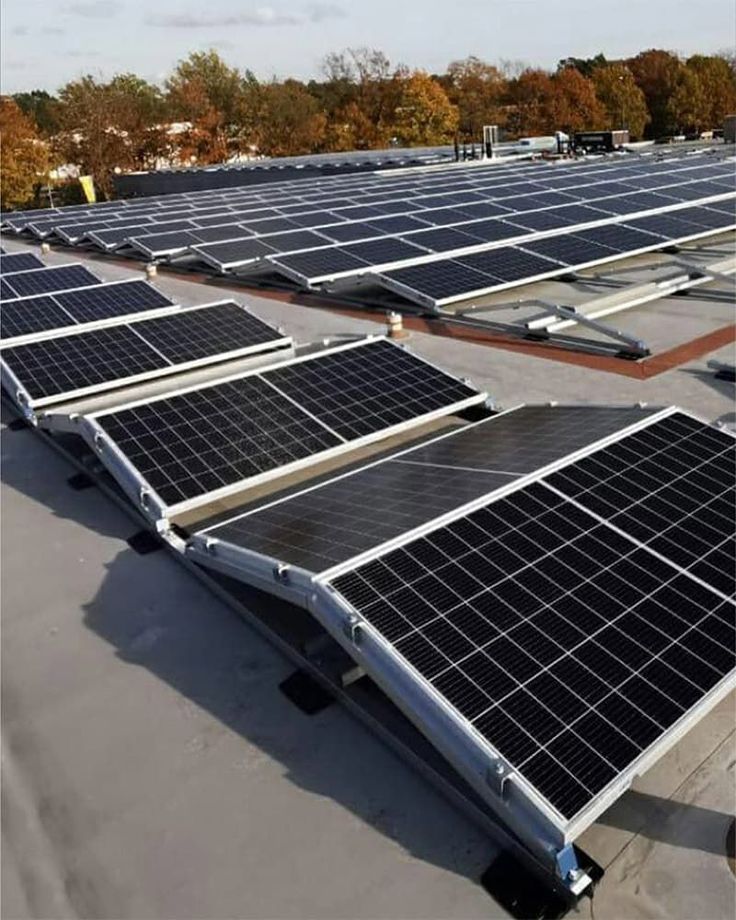In an increasingly environmentally conscious world, homeowners are seeking ways to reduce their carbon footprint and gain greater control over their energy consumption. Installing solar panels at home has emerged as a leading solution, offering a compelling array of benefits that extend beyond just environmental stewardship. From significant financial savings to enhanced property value and increased energy independence, solar power is proving to be a smart and sustainable investment for modern households. This article delves into the multifaceted advantages of “Benefits of Installing Solar Panels at Home.”
1. Significant Savings on Electricity Bills
One of the most immediate and attractive benefits of going solar is the substantial reduction in monthly electricity bills. By generating your own power, you dramatically decrease your reliance on electricity from the utility grid.
- Reduced or Eliminated Bills: Depending on the size of your system and your energy consumption, you could significantly lower your electricity bill, or even eliminate it entirely.
- Net Metering: Many regions offer net metering programs, where excess electricity your panels generate is sent back to the grid, and you receive credits on your bill, further offsetting costs.
- Hedge Against Rising Prices: Solar energy provides a predictable energy cost for decades, protecting you from fluctuating and often rising utility rates. This long-term price stability offers significant financial security.
2. Increased Home Value
Installing a solar power system is a home improvement that adds tangible value to your property home solar power system. Studies consistently show that homes with solar panels sell faster and at higher prices than comparable homes without solar.
- Modern Appeal: Solar-equipped homes are seen as modern, energy-efficient, and desirable.
- Lower Operating Costs for Buyers: Prospective buyers are attracted to the prospect of lower monthly utility bills, making your home more appealing in the market.
- Long-Term Asset: Solar panels are durable, with lifespans of 25-30 years, making them a valuable long-term asset.
3. Reduced Carbon Footprint and Environmental Impact
For environmentally conscious homeowners, solar energy offers a direct way to contribute to a greener planet.
- Clean Energy Source: Solar power generates electricity without producing greenhouse gas emissions, air pollutants, or relying on finite fossil fuels.
- Combat Climate Change: By reducing your reliance on traditional energy sources, you actively participate in mitigating climate change and promoting a sustainable future.
- Personal Contribution: Installing solar panels allows you to make a tangible, positive impact on the environment directly from your home.
4. Energy Independence and Grid Resilience
Solar panels provide a degree of energy independence, giving you more control over your power supply.
- Reduced Reliance on Utilities: You become less dependent on the centralized utility grid, which can be susceptible to outages, price hikes, and infrastructure issues.
- Backup Power (with Batteries): When paired with battery storage, a solar system can provide critical backup power during grid outages, ensuring your essential appliances remain operational. This offers peace of mind and security.
- Local Power Generation: Generating electricity on-site reduces the need for long-distance transmission, minimizing energy loss and stress on the grid.
5. Access to Financial Incentives and Rebates
Governments and local authorities actively encourage solar adoption through various financial incentives, making the initial investment more affordable.
- Tax Credits: Significant federal tax credits (like the Investment Tax Credit in the U.S.) allow homeowners to deduct a percentage of the solar system’s cost from their taxes.
- State and Local Rebates: Many states, counties, and even utility companies offer additional rebates, grants, or performance-based incentives.
- Property Tax Exemptions: In some areas, the added value of a solar system is exempt from property tax assessments.
- Sales Tax Exemptions: Some regions waive sales tax on solar equipment purchases.
These incentives can dramatically reduce the net cost of a solar system, improving its Return on Investment (ROI) and shortening the payback period.
Conclusion
Installing solar panels at home is a powerful decision that offers a compelling blend of financial, environmental, and practical benefits. From slashing electricity bills and increasing property value to reducing your carbon footprint and gaining energy independence, the advantages are clear. As technology continues to improve and incentives remain strong, 2025 presents an opportune time for homeowners to make the smart investment in solar energy, securing a brighter, more sustainable future for their homes and the planet.


